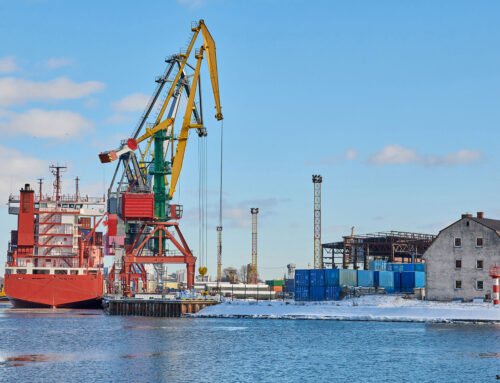In today’s rapidly evolving world, supply chain digitalization is delivering remarkable advances in productivity, speed, and visibility. These technological shifts are reshaping how goods are moved and managed, promising a future where supply chains are more efficient, responsive, and adaptive than ever before. At Remcoda, we are closely observing and leveraging these industry-wide changes to optimize our operations.
The Power of Digitalization
Over the past few years, the pace of digitalization in supply chain management has accelerated dramatically. Companies across the industry are implementing advanced technologies such as robotics, intelligent process automation, and artificial intelligence to enhance every facet of their operations. For instance, robotic-assisted picking and goods-to-person systems are significantly boosting picking productivity. Similarly, robotic unloading and sortation systems are automating repetitive and physically demanding tasks, allowing workers to focus on higher-level responsibilities.
These digitalization efforts are targeted at specific use cases to maximize operational value. However, they are also part of a larger process—integrating people, equipment, data analytics, and materials to streamline the entire supply chain.
The Value of Integrated Systems
Supply chains today face a high degree of variability—trucks arriving late, employee absences, fluctuating order volumes, and equipment failures are common disruptions. Traditionally, warehouse and transportation managers have adapted to these challenges on the fly, often leading to inefficient resource utilization.
The goal is to eliminate these inefficiencies by dynamically balancing resources across the supply chain. This approach maximizes the value of every resource, ensuring orders are filled faster, more efficiently, and at a lower cost. Due to the complexity of modern supply chains, this represents a significant challenge, but like digitalization, it is an ongoing process that evolves with technological advancements.
Advancing Integration in the Warehouse
The warehouse, as a central hub of supply chain resources, is a key area for this integrated approach. Many operations are now utilizing multiple robotic and automation solutions. The current challenge is not just implementing these technologies but orchestrating their operation alongside human workers to unlock new levels of speed, efficiency, and productivity.
By integrating automation technologies at the system level, companies can create a continuous and harmonized data flow, essentially building a central nervous system for the warehouse. This system provides real-time visibility into tasks, inventory, and resource availability, allowing managers to dynamically adjust operations. For example, they can balance the ratio of assisted-picking robots to human pickers or reallocate resources across different tasks to eliminate bottlenecks.
Integration within the warehouse allows for constant resource balancing, real-time labor optimization, and process smoothing to accommodate fluctuating demand.
Integration Across the Supply Chain
The principles of integration extend beyond the warehouse to the entire supply chain. In transportation, for instance, significant cost reductions can be achieved by minimizing empty miles traveled by trucks. Dynamic routing and driver utilization during non-peak periods are strategies that address this challenge. Returns management, a major pain point for e-commerce, is also ripe for this approach.
Ultimately, the true potential lies in its application to all supply chain activities, including transportation, warehousing, packaging, and inventory management. With advanced tools like AI, an end-to-end integration strategy can enhance forecast accuracy, maximize resource utilization, eliminate inefficiencies, and improve customer service.
Navigating the Future
Advancing this integrated approach requires deep supply chain expertise, technology proficiency, and proven processes for managing both technology and people. As these digitalization trends continue to evolve, the role of integrated systems in supply chain management will only become more critical.
At Remcoda, we are committed to staying at the forefront of these developments, leveraging the latest innovations to drive operational excellence and deliver superior service to our partners. Together, we can navigate the future of supply chain management and achieve new levels of efficiency and effectiveness. For more information on how digitalization can transform your supply chain, visit our website.







